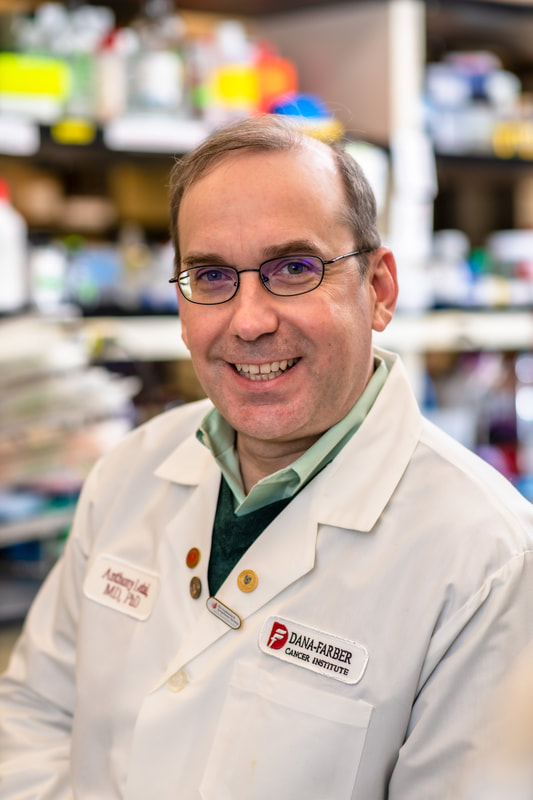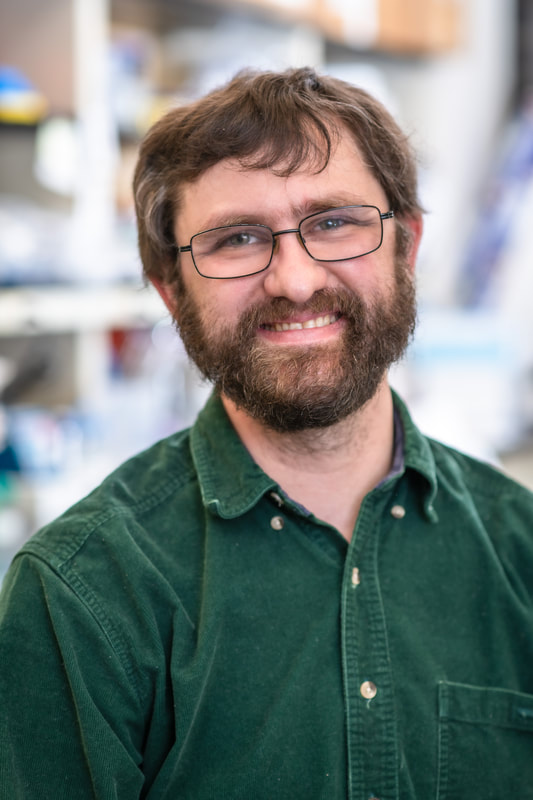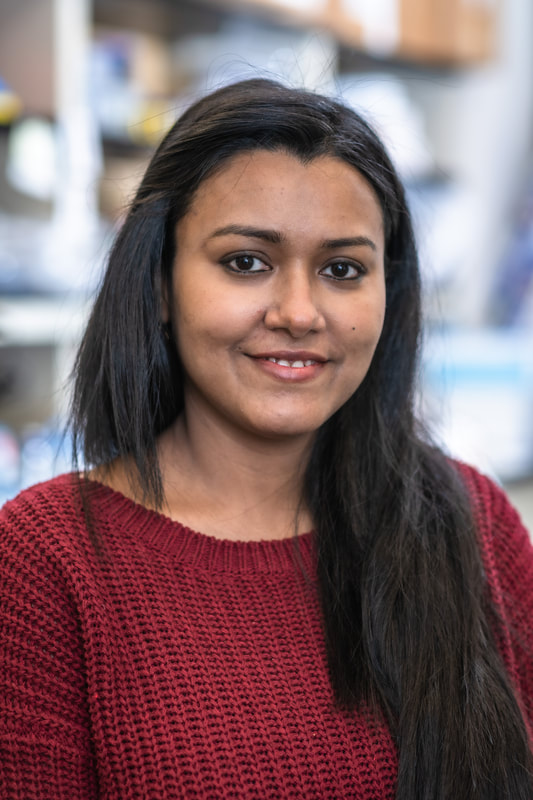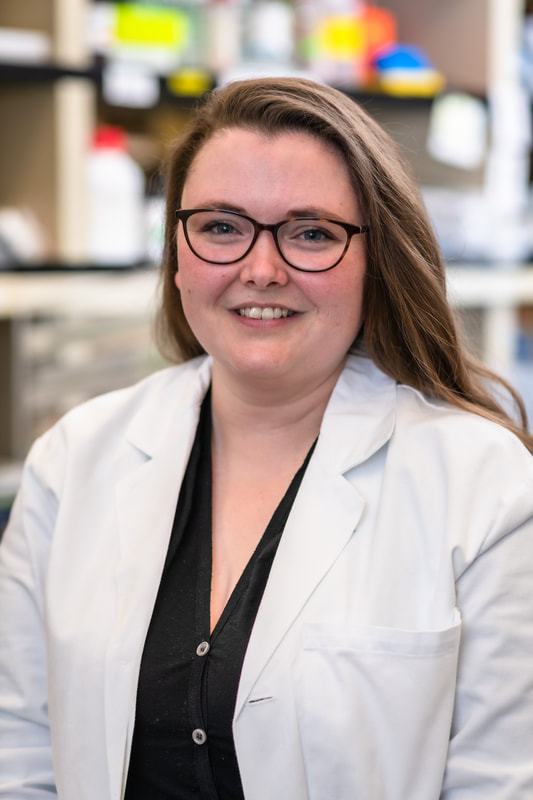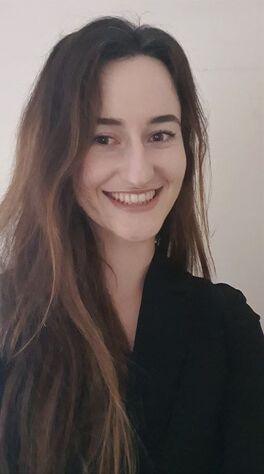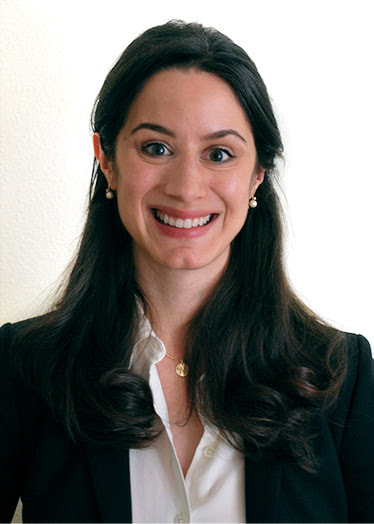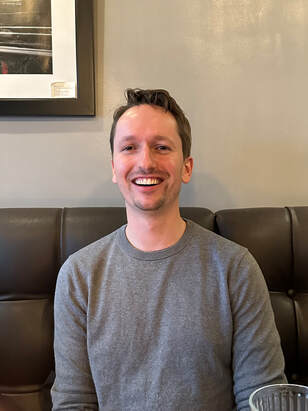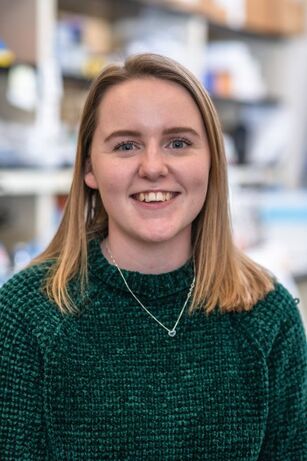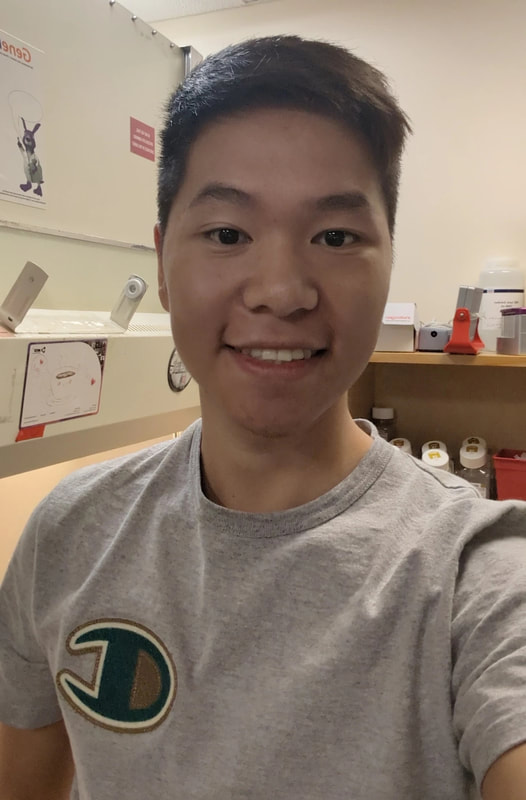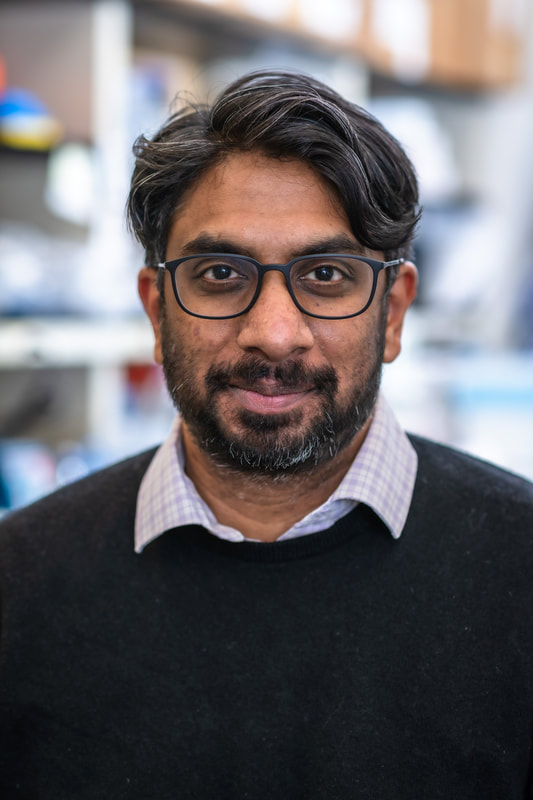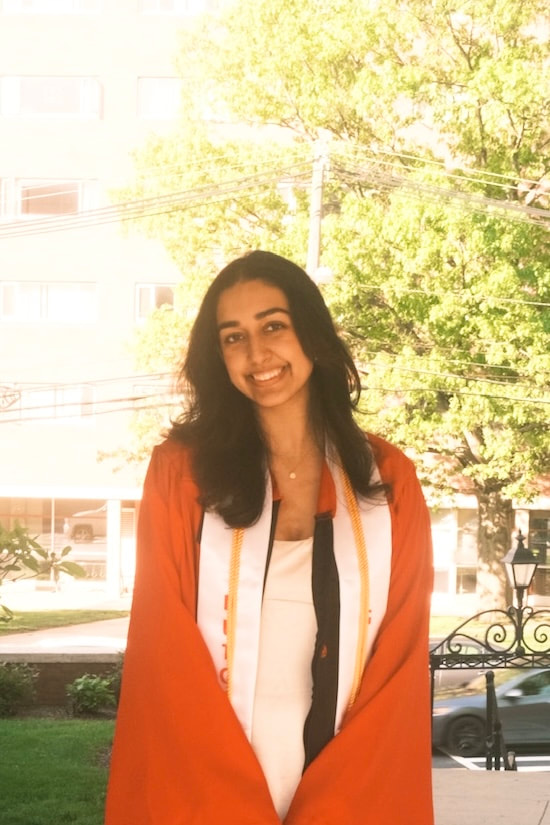People at The Letai Lab |
We are a passionate and unique group of scientists, coming from all around the world, as seen in our lab family map! We are joined together by our common goal of improving patient treatment through BH3 mimetics.
|
LAB PRINCIPAL INVESTIGATOR
|
Tony Letai is a professor in Medicine at Harvard Medical School and Dana Farner Cancer Institute.
He received his MD and PhD at the University of Chicago. His PhD was done under the supervision of Elaine Fuchs. His thesis examined the role of point mutations in keratin proteins in heritable blistering diseases. Dr. Letai then completed clinical training in Internal Medicine at Brigham and Women's Hospital followed by a fellowship in Hematology and Oncology at Dana-Farber Cancer Institute. He was introduced to apoptosis and BCL-2 family proteins as a post-doctoral researcher in the laboratory of the late Stanley Korsmeyer. His laboratory has studied how apoptosis can be evaded, particularly in cancer cells, and how this evasion may be detected and targeted. Key to these studies is a novel assay - BH3 profiling. The laboratory will be testing whether BH3 profiling can be used as a predictive biomarker in clinical cancer therapy. In his free time, Dr. Letai likes to play soccer, tennis, music, and hang around the house to irritate his lovely wife, three kids, and dog. |
Lab Members
|
B.A. Chemistry and Biology, 2003, St. Mary’s College of Maryland
S.M. Chemistry, 2005, Massachusetts Institute of Technology [email protected] PUBMED |
Jeremy Ryan, Staff Scientist: I started in the Letai lab as a technician in 2006, and since then I have been responsible for many of the techniques used by the lab. I find method development interests me most, and I am fortunate to be trusted with our flagship method, BH3 profiling. Having converted the initial ELISA-based method to quick and relatively simple protocols to use membrane potential or cytochrome c retention, our newest methods can be used on small samples from patients so that we might be able to understand not only tumor biology but better direct therapy.
I currently manage the BH3 Profiling Flow Core (BPFC) that services multiple clinical trials in diseases such as AML, ALL, and CLL. I also offer BH3 profiling assistance to users around the world as they get started with profiling. Outside of the lab, I love wildlife photography, music, drawing, and story writing. |
|
Salma Parvin, Post-Doctoral Research Fellow: I joined Letai lab in 2017. I am developing high-throughput functional assays to assign novel therapies for Relapsed/Refractory Chronic Lymphocytic leukemia by targeting BCL-2 family proteins.
In free time, I enjoy binge-watching, cooking, painting, exploring different restaurants in Boston and spending time with my husband. |
University of Calcutta, BSc and MSc
University of Miami, Miller School of Medicine, PhD
[email protected]
PUBMED
University of Miami, Miller School of Medicine, PhD
[email protected]
PUBMED
|
Julie MacDonald, Post-Doctoral Research Fellow:I joined the Letai Lab in 2019 after completing my Ph.D. in the Laboratory for Aging and Infertility Research under Jonathan Tilly and Dori Woods at Northeastern University. My work here seeks to understand how therapy-induced senescence in varied cancer models impacts apoptotic priming, and more broadly how the Bcl-2 family control of apoptosis is impacted by aging.
I also enjoy baking, trying new crafts, playing tennis, and can be frequently found at the Museum of Fine Arts on weekend afternoons. |
|
Maria Davern, Post-Doctoral Research Fellow: I joined the Letai lab in November 2021 after completing my PhD in cancer immunology in the Trinity St. James’s Cancer Center in Trinity College Dublin, Ireland (2017-2021). My interest in cancer immunology and targeting programmed cell death pathways to overcome treatment resistance began during my MSc in Translational Oncology, which I carried out in Trinity College Dublin, Ireland (2016-2017). The primary focus of my work here in the Letai lab aims to identify novel combinations of drugs to combine with immunotherapies to prevent tumour recurrence, improving survival outcomes for patients. In my free time I enjoy running, reading, yoga and barre classes.
|
|
Nathalie Javidi-Sharifi, Clinical Fellow in Hematology-Oncology and Post-Doctoral Research Fellow: I joined the Letai lab in January 2022. I completed my clinical fellowship training in Hematology and Medical Oncology at the Dana-Farber Cancer Institute, Brigham and Women’s Hospital and Massachusetts General Hospital before joining the lab. Originally from Munich, Germany, I studied biochemistry at the Technical University of Munich. I later moved to Portland, Oregon, for a PhD in Cancer Biology, mentored by Dr. Brian Druker and Dr. Jeffrey Tyner. I also completed medical school and residency training in Internal Medicine at Oregon Health and Science University. My focus in the lab is on hematologic malignancies and functional precision medicine. I'm applying functional profiling techniques developed in the Letai lab to clinical questions in lymphoma therapy. Outside of work, I enjoy time with my family, gardening, reading, running, and yoga.
|
|
Michael Olson, Post-Doctoral Research Fellow: I joined the Letai lab in 2022 after finishing up my PhD in Immunology at the University of Utah. During grad school, I became interested in the field of cellular immunotherapy as I investigated a novel target for CAR T cell therapy as well as an interesting mechanism of antigen loss that promotes CAR-T relapse. I joined the Letai lab with an interest in better understanding the mechanisms underlying T cell survival and cytotoxicity and how we can manipulate these pathways to improve T cell-based immunotherapies. Outside of the lab I enjoy biking, excessive walking, getting confused by my YouTube recommendations and thrifting.
|
|
Emma-Jayne Minihane, Post Doctoral Researcher: After completing my PhD at the University of Cambridge (Babraham Institute, Dr Simon Cook lab), I joined the Letai lab in August 2020. My PhD research focused on developing optimized combinations of BH3 mimetics with BRAF and/or MEK1/2 inhibitors in melanoma and colorectal cancer, and this is where my interest in precision medicine began. I am now researching AML and developing DBP from a research tool into a clinical tool. This involves obtaining an IDE from the FDA.
I am originally from the small island of Jersey in the Channel Islands so I am excited to now be living in Boston and exploring all that it has to offer. In my spare time I enjoy weightlifting, long walks, being by the water, and playing with my crazy cat Milo! |
|
Jason Wu, Research Technician: I joined the Letai Lab in May 2023, where I currently work with Jeremy Ryan using baseline BH3 profiling on clinical samples from leukemia patients to help gauge treatment effectiveness and be able to predict patient response to anticancer therapies that rely on invoking the mitochondrial apoptotic pathway. I am also investigating the effects that hypoxic conditions can have on the apoptotic priming of cancer cells.
Outside of work, I enjoy playing tennis/basketball, spending time with my dog and cat at home, and cooking the most delicious Chinese recipes passed down from my family! Purdue University, Bachelor's Degree [email protected] |
Laboratory for Functional Precision Medicine (LFPM)
Given the rapid development of new small molecule cancer therapeutics, there is a growing need for predictive diagnostics to match cancer patients with optimal therapies. Unfortunately, molecular changes induced by cancer therapies are complex, and for most patients we cannot accurately predict tumor response based on pretreatment genomic or proteomic measurements. We previously developed a precision medicine technology with a functional phenotypic readout called dynamic BH3 profiling (DBP). DBP exposes cancer cells to drugs and measures induction of apoptotic cell death signaling after 24 hours ex vivo. We previously performed proof of principle tests using large excisional tumor samples and demonstrated that DBP predicts chemotherapy response in animal models and humans.
The Laboratory for Functional Precision Medicine (LFPM) is a small lab space within the Laboratory for Systems Pharmacology to perform dynamic BH3 Profiling. The goal is to use dynamic BH3 Profiling for identifying drug treatments for cancer types (with a focus on solid tumors), and for precision medicine:
The Laboratory for Functional Precision Medicine (LFPM) is a small lab space within the Laboratory for Systems Pharmacology to perform dynamic BH3 Profiling. The goal is to use dynamic BH3 Profiling for identifying drug treatments for cancer types (with a focus on solid tumors), and for precision medicine:
- HT-DBP screens on colon cancer, pancreatic cancer, fibrolamellar hepatocellular carcinoma, sarcoma, ovarian cancer, rapid autopsy tumors, and canine cancers.
|
Patrick Bhola, Instructor at DFCI and Co-Director of the LFPM: Patrick Bhola joined the Letai Lab in 2010 after completing a PhD at Rockefeller University. Patrick studies apoptotic heterogeneity within tumors, and has developed high-throughput approaches to evaluate chemicals that sensitize tumors for apoptosis. In his spare time, Patrick enjoys going to baseball games, aimlessly driving along the seacoast, and spending time with his wife and son.
|
|
Shaili Soni, Research Technician: I joined the Letai lab in June 2023, exploring my interests in translational research. I’ve been working with Dr. Patrick Bhola in the LFPM conducting high-throughput dynamic BH3 profiling to identify drug-induced apoptotic priming in tumor cells. Recently, I’ve been continuing a project that allows us to profile solid tumor samples with low cell counts using live-cell imaging.
I’m new to Boston so I’m enjoying finding new hikes & running routes, spending too much time at bookstores, playing around with film photography, and having movie nights :) Rutger's University, Bachelor's degree [email protected] |

